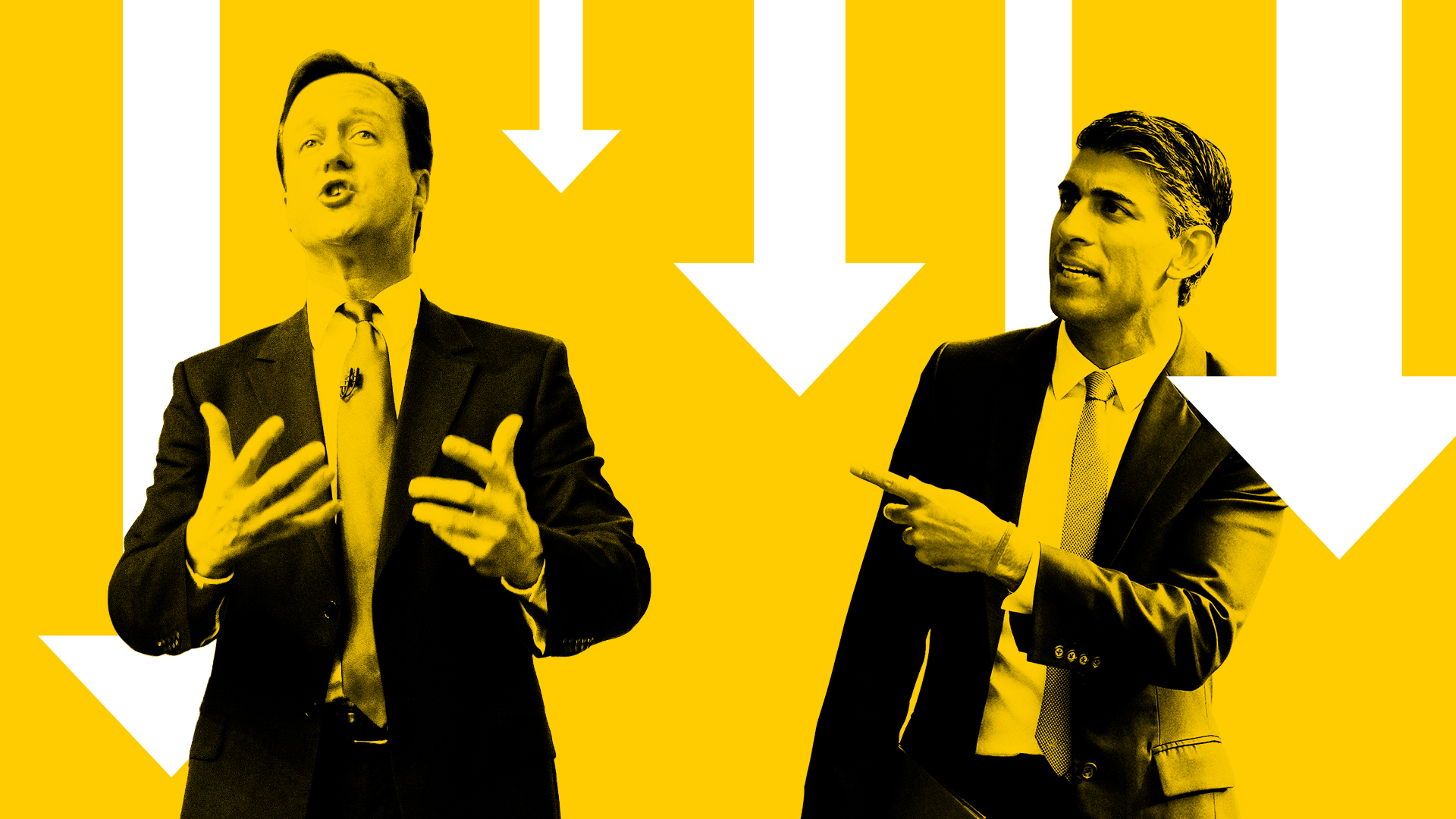Inevitably, the government has decided to tighten it, claiming this will reduce disability-related unemployment – a claim since blown apart by the Office for Budget Responsibility.
Of course, not all unemployed people are disabled. Britain has low unemployment by international standards, but at no point has that interrupted the moral panic over “workshy scroungers”, supposedly stealing a living at the taxpayers’ expense.
The way Britain thinks about unemployment is garbage. Unemployment is a product of the economy far more than it is of individual choice or moral worth. It rises when the economy struggles. It falls when the economy improves. Again, it’s not hard.
Short-term unemployment is a product of Britain’s chosen economic model – flexible labour markets, with companies at liberty to hire and fire at will, and widespread use of casual and seasonal workers. People cycle in and out of short-term work, with low-paying employers under little obligation to provide training or career pathways.
Genuinely full employment would terrify both employers and the government – workers would gain the bargaining power to secure pay rises, reducing profits or driving inflation. Politicians who favour this model shouldn’t complain about its effects, but that doesn’t stop them.
When the Tories took office in 2010 they promised to do more with less, under a convenient delusion that the public sector was full of readily cuttable waste. The lesson of the last 14 years is that “shit costs money”. That applies to public services, but it also applies to the benefit system – or rather, what the system was created to do. Reducing poverty costs money. Reducing homelessness costs money. Reducing ill health costs money. But investment will save money in the end.
For decades, successive governments have unveiled wave after wave of “crackdowns” on benefit claimants. Whatever the aim of it all was, if it hasn’t been achieved by now it never will.
Policy involves trade-offs. Public spending requires government income. This isn’t the place to write a manifesto. But we have some evidence of what could work, and what impact cash transfers have. A pilot scheme in Vancouver found that making one-off unconditional CAD$7,500 (£4,350) payments to homeless people not only reduced homelessness, but generated net savings by cutting demand for homeless shelters. A basic income pilot in Ontario, which increased benefits payments to people on lower incomes, saw improvements in health and living standards.
Britain should abandon its failed punitive politics and try something else to restore our public services. Scrap the sanctions system. Work with disabled people to find a new approach. Stop trying to micromanage benefit claimants’ lives with curtain-twitches like the bedroom tax. Raise benefits to a level that actually meets people’s needs, and give them to people who need it without placing a hundred obstacles in their way.
Most people want to do something with their lives. Give them the means to do it and let them get on with it.
Chaminda Jayanetti is a freelance journalist.
This article is taken from The Big Issue magazine, which exists to give homeless, long-term unemployed and marginalised people the opportunity to earn an income. To support our work buy a copy!
If you cannot reach your local vendor, you can still click HERE to subscribe to The Big Issue or give a gift subscription. You can also purchase one-off issues from The Big Issue Shop or The Big Issue app, available now from the App Store or Google Play









